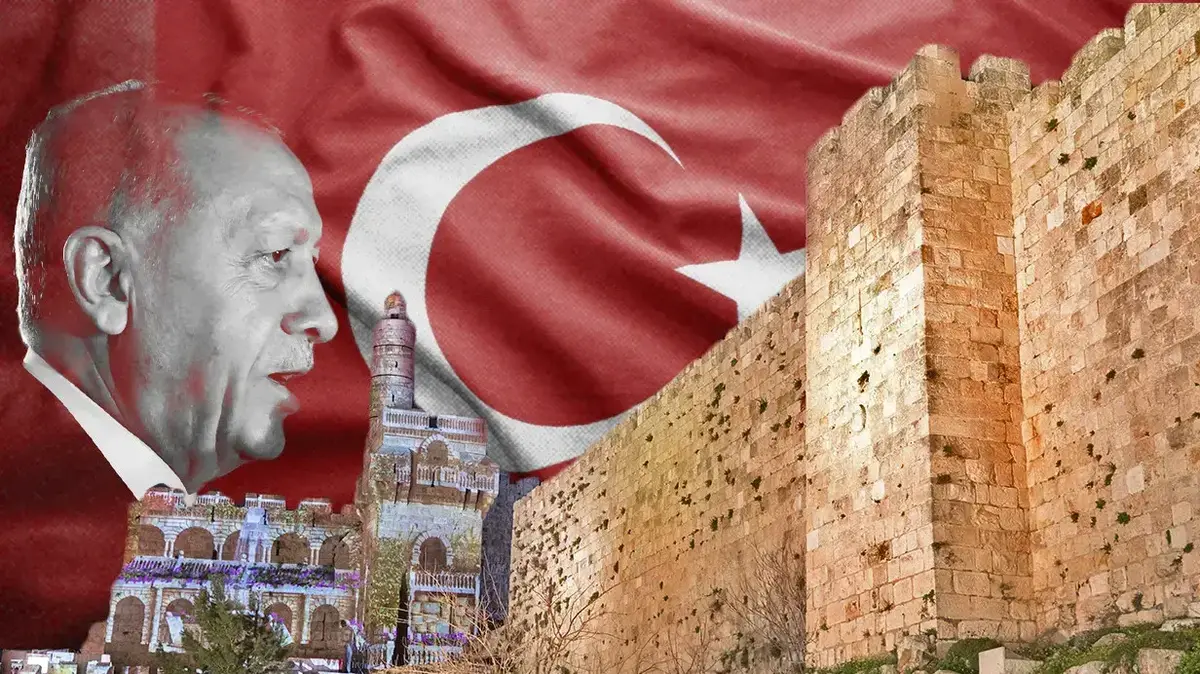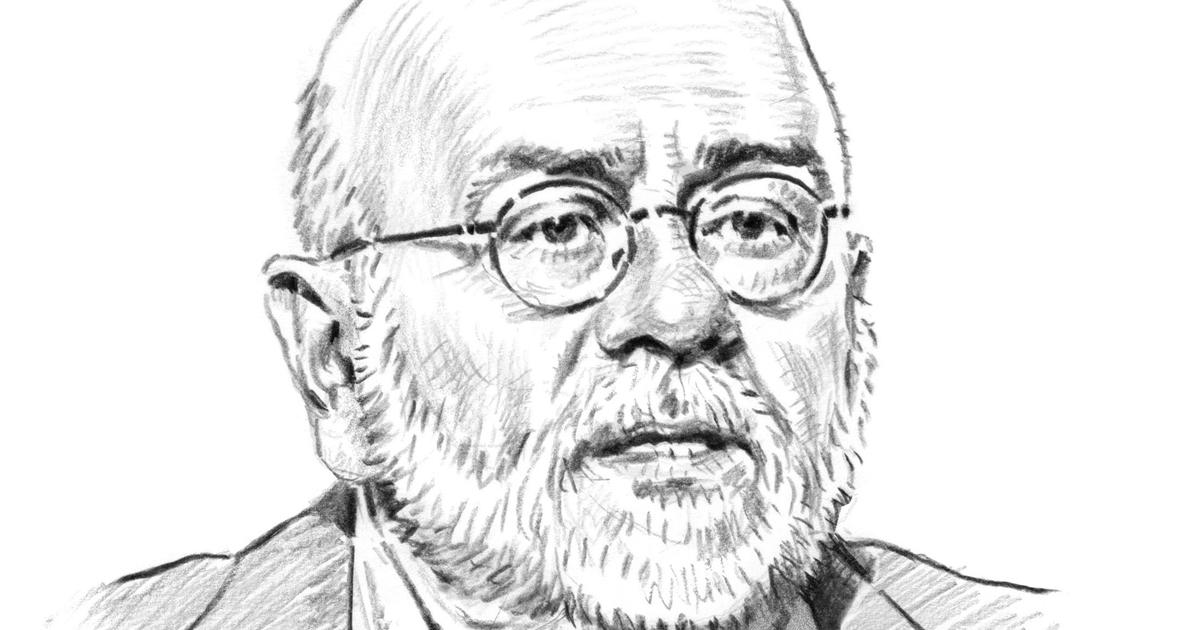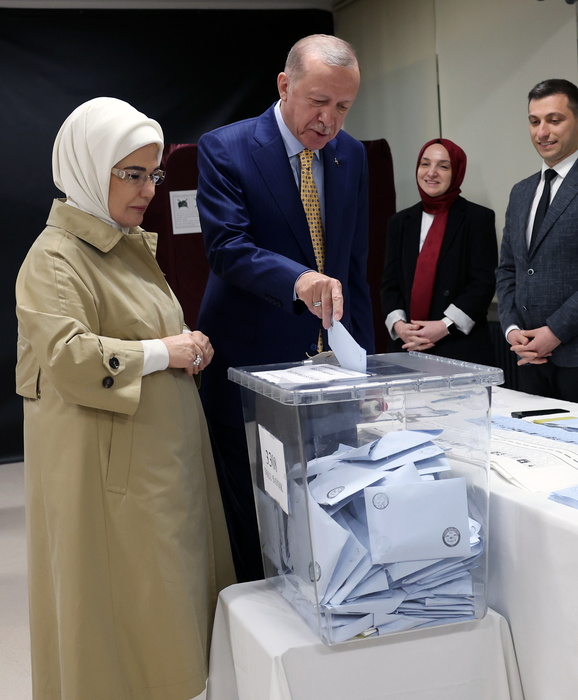In a narrow alley in the Muslim Quarter of the Old City, stands a café with an unusual custom. Before entering, customers are required to deposit their mobile phones in a plastic basket throughout the visit. The average tourist who has developed expectations for a secret attraction will probably be disappointed to discover that this is a completely normative restaurant. A long corridor leads to a terrace surrounded by thick curtains with tables and menus. But at the one moment when there is no waiter around, it is worth peeking through the curtains. In the second the token falls - this is why the phone is left out:
the chain of Turkish flags, the official portrait of President Recep Tayyip Erdogan, posters and books in Turkish script and the red symbol with the crescent and star adorn every square meter on the walls. Suddenly, you can connect the strange music coming from the radio and the large security camera that security officials have placed at the entrance to the building. The thick curtains separating the café's tables from its real walls are not only physical, they are a look at the international backgammon in East Jerusalem – and the attempt to make a Turkish march here.
The corner dedicated to Erdogan and Turkey in a café in East Jerusalem (Photo: documentation on social networks according to section 27A of the Copyright Law)
Not far away, one of the main streets of East Jerusalem and perhaps the busiest outside the walls of the Old City – Saladin – everything is already more visible. Turkish flags can be seen in the streets, buy "donar kebabs" at the local restaurant, learn Turkish at the nearby school and enjoy traditional music in the conservatory established in the cultural center, how not - the Turkish.
This is nothing new. For years, Turkish daily life has been stamping its feet on the streets of East Jerusalem – in the Old City and its environs. Nor is this a fad – the first reports of Turkish footprints surfaced more than two decades ago, and have since continued under the nose of the authorities, putting them in a particularly complicated mess.
Turkish shawarma stand in East Jerusalem (Screenshot, none)
The Last Man in the Middle East
"Erdogan sees himself as the successor of the Ottoman Empire – and is also trying to be perceived as a historic Islamic regional leader," explains Dr. David Koren, head of the Jerusalem Institute's Institute for Policy Research. "The relatively small money he invests here fits exactly with his ideology – as someone who has to defend the three symbols of Islam himself." According to Dr. Koren, Erdogan sees the residents of East Jerusalem as "orphans": on the one hand, they do not identify with Israel, but are also angry at the Palestinian Authority – and the Turkish leader manages to step into the vacuum created elegantly: "They perceive him as 'the last man in the Middle East.' The only person who can change and move things."
From the legendary image he has built for himself, Erdogan heats up engines. For more than two decades, he has chosen to invest billions in East Jerusalem: renovating houses that are about to collapse, funding summer camps for low-income families, and supporting businesses that are overwhelmed by the economic burden. He does not transfer the money himself, but with the help of TIKA, the Turkish aid agency that funnels money to needy populations in the Middle East and beyond, and to places where Erdogan has an interest.
Since then, Tika's name has been associated with organizations that are not very positive about Israel, most notably IHH, another foundation for human rights, freedoms and humanitarian assistance, which actually launched the Mavi Marmara flotilla towards the Gaza Strip in 2010.
The Turkish flag flies in one of the shops (Photo: Yinon Shalom Yattah)
Tikka is a signatory to hundreds of projects throughout Jerusalem, not covertly - quite the opposite. The agency takes as much credit as possible for its help, and Saladin Street is an excellent example of this: one of the main buildings there hardly paid taxes, and soon Tikka representatives knocked on the owner's door with a generous offer: "We will pay you rent, as much as you want, and establish a cultural center for the benefit of the residents." Not much time has passed since then, and 4 months ago the "Yabus" center for Turkish culture was inaugurated there. And not only that: Tikka recently held a joint dinner she organized during Ramadan with senior members of the Arab community in Jerusalem. Among those present was none other than Akrama Sabri, the inciting sheikh from the Temple Mount whose file is currently under police investigation.
"People here are in a difficult situation, they need money. Arnona here is very high, you pay taxes like in Tel Aviv, but you get much less, I can only sell very cheaply because poverty is hard," one of the business owners on Salah a-Din Street told Walla!. "Tikka knows this and offers to help almost without compensation. For people here, it changes the whole day-to-day, and you can't stop people from taking bread. But what can I tell you? I'm afraid to mess with them."
Business owners in the area often say they think twice about taking the help of Tikka and its ilk, whom they refer to in East Jerusalem as "outsiders," out of fear of going into debt with foreign elements. But when the minus knocks on the door and the reward for the generous offer is just hanging a small flag at the entrance or a song in Turkish on the loudspeakers - who will refuse?
In order to understand how sharp the Turks are on the target, one has to look at this testimony, which comes from a former senior official in the Jerusalem municipality: "We received a call at the municipality's hotline about a house about to collapse in the Old City of Jerusalem. We immediately left with tools and workers to the scene. When we arrived, they told us we were unnecessary – a TIKA delegation had just left."
"Most of the foreign activity in East Jerusalem is not carried out in the security worlds, but rather in the worlds of charity," explains Dr. Koren. "If I support orphans and widows, pour money into helping children in extracurricular activities, and even offer them scholarships to pursue undergraduate studies in my country, I buy them."
Erdogan with Sheikh Akrama Sabri, who was interrogated by the police for incitement (Photo: documentation on social networks according to section 27A of the Copyright Law)
The Israeli Plotter
"Unlike other elements that are busy in East Jerusalem, Erdogan has no problem provoking instability or unrest here, on the contrary. He's trying to heat the area as much as possible," explains Ran Yishai, an Israeli diplomat and former Israeli ambassador to Kazakhstan and director general of the Jerusalem Ministry. The Turkish president himself wrote the introduction to the plan to invest in the Palestinians through Tikka: "To strengthen the Palestinian position against attempts at Israelization."
"Do you know how to cook cancer?" surprises the diplomat. "If we put it in a pot with boiling water, it will harden and its meat will be difficult to eat. French cooking understood years ago that crab had to be introduced into cooking when the water was warm. Then, when it's comfortable and pleasant, amplify the flame."
The situation with Turkey, he claims, is no different at all. None of those present intend to pour boiling water on the situation between Turkey and Israel – but there is a flame bubbling beneath the surface and gently warming the cauldron. Turkey itself does not pour a single shekel here, but for Erdogan it is a national mission.
For years, Israeli investment in East Jerusalem was almost non-existent. 300,<> residents who didn't feel connected to anyone, whose economic situation is only deteriorating, but who are sitting on a strategic gold mine. Control of Jerusalem crosses international borders and everyone wants to bring his Schenkel into the "holy lands." It only starts at the Russian Compound and the Russian-owned Alexander Court, but continues through the Greeks, Germans and Italians. And even if you set aside the assets of the churches in the city, you get street renovations with Jordanian money, a fund for land maintenance with Moroccan money, renovation of mosques with Qatari money, and initial reports of Saudi involvement.
But most prominent of all is Erdogan, who manages to bring Turkish involvement into the streets. According to testimonies obtained by Walla!, the assimilation in East Jerusalem is so profound that not only Erdogan is receiving sympathy, but there are entire strongholds, such as the A-Tur neighborhood, where Turkish opposition leader Kilicdaroglu is supported.
Tikka Agency's Ramadan iftar dinner with senior figures in Arab society in East Jerusalem, including Sheikh Akramah Sabri, suspected of incitement (Photo: documentation on social networks according to section 27A of the Copyright Law)
In recent years, thanks to the five-year plans in East Jerusalem and the ongoing rehabilitation activities of the Jerusalem Municipality, the situation has changed. Citizens see the municipal authority's service as a safer and more reliable place to use, and some prefer Israeli service. "Since the economic situation in Turkey worsened, the financial ability to finance foreign activities has been decreasing, especially since there is a zero-sum game here: the more Israeli activity grows in women's centers, in helping the elderly, in children's extracurricular activities, the less Turkish involvement decreases."
A positive first step, but it is very far from effective. "When your fight is against charities and donations, almost everything is in a gray area," says Dr. Koren. "The problem is not to stop Tikka's involvement in a foundation that helps children in the neighborhood – but to bring the appropriate alternative that will take care of them. The state doesn't have to look at the challenge in East Jerusalem when Tika is there, but what happens without it?"
Indeed, after two relatively difficult years in the Turkish economy, partly due to the coronavirus (and in a direct context also in its involvement in the Jerusalem arena), there was a feeling that they had taken a step back. Ran Yishai, who today serves as head of JCAP – the Center for Applied Policy Research in Jerusalem, also felt that something was happening here.
"Turkey is coming back in a big way," Yishai warned. "The joint meal during Ramadan, as well as the inauguration of the new center, and a number of other steps only show how much Erdogan is not interested in giving up the idea of holding on to the land. Today, it is replacing specific social aid, renovating homes and helping the poor, but it is only a matter of time before we experience Turkish involvement in places that will oblige Israel to act, and then it will be too late."
The Moroccan flag also flies in Jerusalem (Photo: Yinon Shalom Yattah)
The Balance of Terror
Turkey's involvement in East Jerusalem has not gone unnoticed by senior Foreign Ministry officials, including those who served there in diplomatic positions. The question of Israel's response to Turkey's actions in the heart of Israel's capital hovers but bears no fruit on the ground. Moshe Kanfi, former Deputy Consul General in Istanbul, experienced the saga of the Turks in Jerusalem very closely and tells of the "balance of terror" between Israel and Turkey: "This is a love-hate relationship. Both countries understand that they need each other's help in a number of areas, but even in the worst relations, no one has violated the cooperation."
"Turkey understands how critical this is for it, so it doesn't draw the line all the way," explains the former vice consul, defining Tika's actions as an attempt to "scratch the cliff," and now looking at it as the worst – but best option: "In the aid vacuum in East Jerusalem, a lot of TIKA liquid is coming in right now, if Israel or Turkey decides to pour this liquid out, there will be a void left that will have to be filled somehow - and if Israel doesn't jump in time, Hamas and Islamic Jihad, whose leadership is based in Turkey, will not hesitate to replace Tikka."
The Foreign Ministry said in response: "The matter will be examined. The foreign minister's policy is to prevent any foreign intervention in the Israeli-Palestinian conflict."
- news
- Political-Political
Tags
- East Jerusalem
- Turkey
- Recep Tayyip Erdogan
- Jerusalem
- Ottoman Empire








